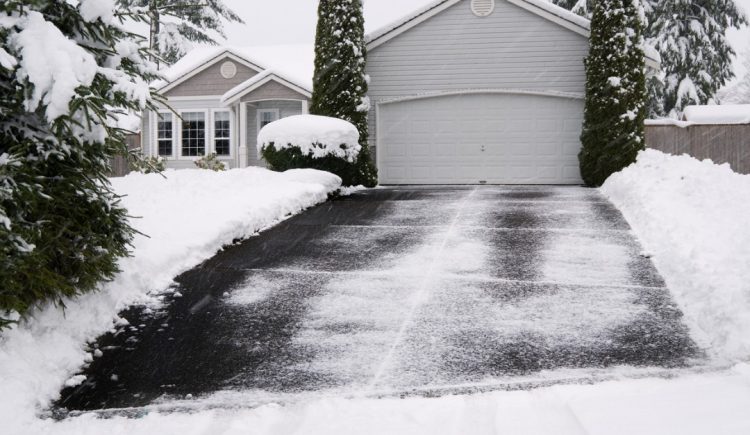Snow, ice and repeated freezing and thawing can cause damage to your driveway. Cracks and potholes can form not only from exposure to winter weather, but also from measures you may take to deal with slippery conditions. Here are some ways to protect your driveway and avoid expensive repair bills.
Be Proactive
Remove leaves and other debris from your driveway before a storm. If debris gets buried under snow, plowing the driveway can result in damage.
Applying a sealer to your asphalt driveway and filling in any existing cracks can protect the driveway from thermal shock that occurs when the ground freezes and thaws. This job has to be done before the temperature drops below a specific level. If it’s too late to seal your asphalt driveway this season, cold-mix asphalt can be used to fill in cracks.
Remove Snow Promptly and Safely
Expansion and contraction can cause cracks to form in a driveway, and melted snow can seep into the ground nearby. Shifting in the soil around the driveway can cause the driveway to crack. Removing snow before it has a chance to melt can prevent water from getting into cracks and minimize the risk of damage.
If you use a snowblower or shovel to clear your driveway, use one with a plastic edge. Metal scraping against the surface can cause scratches. If a plow’s blade gets caught in cracks or potholes, it can cause further damage to your driveway. If you decide to hire someone to plow your driveway, make sure the company is reputable and experienced.
Use the Right Product to Provide Traction
Many people sprinkle salt on surfaces that have been covered with snow and ice to create traction. Salt can lead to cracks in a concrete driveway, but may be less likely to cause damage to an asphalt driveway. Be careful, as certain types of salt can be harmful to plants and animals. Deicers may also lengthen the freeze-thaw cycle and contribute to damage. Ask a local contractor to recommend a product that is appropriate for your driveway and for your region’s climate.
Prevent Potholes
If water from melted snow pools in cracks and then the ground freezes and thaws, the increased pressure can cause larger cracks and potholes to form. If you notice standing water after a winter storm, hire a contractor to address the issue before you wind up with serious damage to your driveway in the spring.
Protect Your Driveway This Winter
Snow, ice and changing temperatures can cause significant damage to a driveway. Taking steps to prevent cracks and potholes is much easier and much less expensive than hiring a contractor to repair damage after it has occurred.










